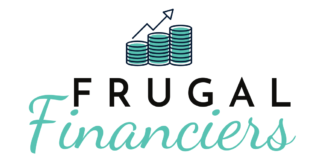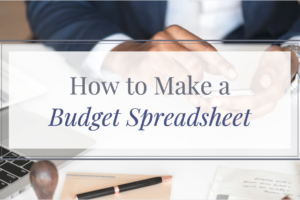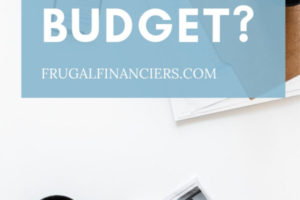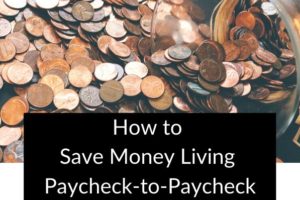Are you thinking about creating an emergency fund?
Are you risk-adverse?
Are you willing to pay insurance for an emergency?
There are many popular personal finance websites and personalities that say you should have a pool of easily accessible money for emergencies.
In this post we’ll discuss:
- What is an emergency fund
- Where do you put an emergency fund
- How to build an emergency fund
- Reasons to have an emergency fund
- Reasons not to have an emergency fund
While most personal finance “experts” state that you should have one, it may not be the best use of your money and actually could hurt you financially.
What is an emergency fund?
An emergency fund is an easily-accessible pool of money that you keep for life’s emergencies.
Common emergencies that have financial impacts are:
- Losing a job or needing to quit a job
- Car repairs
- Illnesses
- Unexpected home repairs or home loss
The idea is that you set aside an amount of money so that if an emergency occurs, you have the cash to pay for the emergency.
If you don’t have
Each emergency can range in cost.
So, if you lose your job and you expect it would take you 6 months to find a job, you may want a fund that would cover 6 months of expenses.
This compares to lower-cost emergencies like repairing your house or car.
Essentially, the fund serves as a buffer so that if an emergency happens, you do not face additional hardship.
Where Do You Put an Emergency Fund?
Generally, you want your fund to be quickly accessible.
This means either putting your cash into a savings account or some other liquid asset with little to no risk.
If you are going to put your money in a savings account, it is worth looking into a high-yielding savings account.
Typically, these accounts have a much higher interest rate than traditional savings account.
You could also look into a money market account or even buying short-term treasury bills.
You just want to be sure, that where ever you put your money, you can easily and quickly access it.
How Do You Build Up An Emergency Fund?
You can build the money for emergencies up slowly, over time or you can build it up quickly.
For example, you could pull a certain amount out of each paycheck until you hit your desired amount for your fund.
Or, you could focus on reducing expenses over a short period of time and quickly contribute to your fund.
Reasons to Have an Emergency Fund
The biggest reasons to hold liquid assets (cash) for an
Ask yourself:
If you had an emergency and needed $5,000, how would you pay for it?
Would you ask someone for the money?
Put it on a credit card?
Tap into your retirement accounts?
And, if you can’t find the money anywhere, what happens?
Do you lose your home?
Lose your car?
Starve?
Have we scared you into creating an emergency fund?
Building a fund helps to prevent these things from occurring if you have a sufficient fund to cover the expenses.
Having an emergency fund will also help you sleep at night if you worry about financial hardship.
For some people, knowing that they are covered if they face a financial emergency is valuable for their emotional health.
If you are risk-adverse or worry a lot about money, having an emergency fund may relieve some of your stress and anxiety.
This emotional support can be both before and during an emergency.
Less to worry about everyday and one less thing to worry about if you experience an emergency.
Essentially, it’s a form of insurance to protect you against emergencies.
And, insurance is a product that removes financial risk and well as provides the insured person with some assurance that they are covered.
When you have home insurance, it protects you financial from the loss or damage to your house.
But, insurance comes at a cost.
Reasons Not to Have an Emergency Fund
Although it might not seem like there is not any downside to having an emergency fund, holding cash for a potential emergency does come at a cost.
There are three hidden costs associated with an emergency fund:
- Inflation
- Opportunity Cost of Investing
- Interest Expense if You have Debt
Inflation
If you’re holding your emergency fund in a no or low-yielding savings account, you money’s value is likely diminishing.
Inflation is the increasing price of the stuff you buy through time.
Like when ever you hear some old person say, back in my day gas cost $0.50 per gallon.
It ain’t $0.50 anymore and that’s inflation.
The amount of money remains the same but your purchasing power diminishes.
Lost Investment Returns
When you choose to hold your money in cash or even a savings account, you’re affectively losing out on the opportunity to invest your money.
Investing does come with risks and you can lose money.
But, investing over a long period of time has proven to be an effective way to build your wealth and overcome inflation too.
Extra Interest Expense of Debt
If you have debt, you are also effectively paying another cost when you have an emergency fund.
When you have debt, you have to pay interest on that debt.
So, instead of holding cash for an emergency, you could instead pay down some or all of your debt and save some money.
How do you save money?
You don’t have to make any additional interest payments.
For example, if you have a debt balance of $1,000 at a 5% interest rate you’ll pay roughly $50 next year.
If you pay off the debt, you don’t have to pay the $50.
If instead, you create an emergency fund, you still have to pay $50 in interest.
Finals Thoughts
An emergency fund can help protect you financial when you face life emergencies, serving a form of insurance.
Not only can it protect you from the financial costs of actual emergencies but it is also a form of support for you emotional well-being.
However, just as insurance costs money, so does holding cash in an emergency fund.
For an in-depth look at these costs, check out our post, 3 Hidden Costs of an Emergency Fund.
You may be able to offset some of these costs by putting you the funds you have for an emergency in a high-yielding savings account.
But, you’ll likely only be able to partially offset these costs, effectively paying to for the liquidity of your cash.
Liquidity is the availability of your assets for you to use for spending or investing. The more available (like cash) the more liquid the asset.
Before you decide to create an emergency fund, consider the benefits and the costs of holding
Also, if you do decide to create a fund for emergencies, plan out how you’re going to build the fund and where you’re going to hold the funds.
If you decide the costs of an emergency fund outweigh the benefits, it is still worthwhile to create an emergency financial plan.





Leave a Reply
Your email is safe with us.
You must be logged in to post a comment.